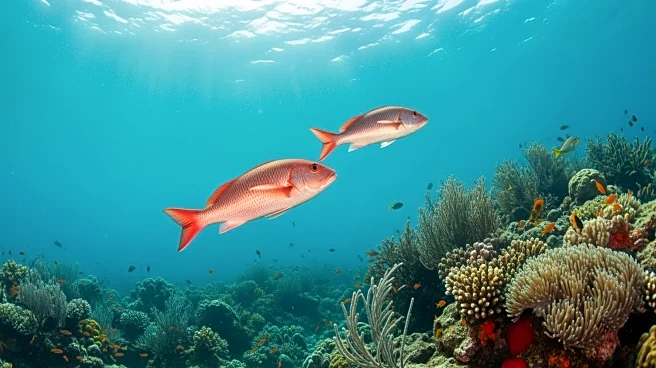What's Happening?
The Ministry of Agriculture, Fisheries and Mining in Jamaica has initiated the Red Snapper Cage Culture Fin Fish Pilot Project to bolster food security and promote sustainability within the blue economy. This project, supported by the United Nations Food
and Agriculture Organization (FAO) and the National Fisheries Authority (NFA), is part of a broader Caribbean Community (CARICOM) initiative. The project aims to increase marine stock and reduce reliance on imported fishery products, which currently account for 80% of Jamaica's consumption. The pilot is being conducted at the Bowden Bay Mariculture Research Facility in St Thomas, with plans to transfer fingerlings into sea cages for growth monitoring. The initiative is expected to rejuvenate reef fisheries and support the reintroduction of marine species.
Why It's Important?
This project is significant as it addresses Jamaica's high dependency on imported fish, aiming to achieve food independence and enhance local marine stock. By fostering sustainable practices, the initiative could lead to import substitution and potential export opportunities, benefiting the local economy. The environmental benefits include the recovery of reef fisheries and the creation of ecological space for marine species, contributing to a sustainable blue economy. The collaboration between public and private sectors is crucial for the project's success, potentially improving livelihoods in coastal communities and expanding the aquaculture sector.
What's Next?
The next phase involves transferring fingerlings into anchored sea cages, where they will be monitored for growth rates and environmental performance. The project is over 70% complete, with documentation of processes and best practices ongoing. This information will be shared with CARICOM partners upon completion in 2026. The FAO remains committed to supporting the initiative's expansion, emphasizing the importance of collaboration for long-term success.














